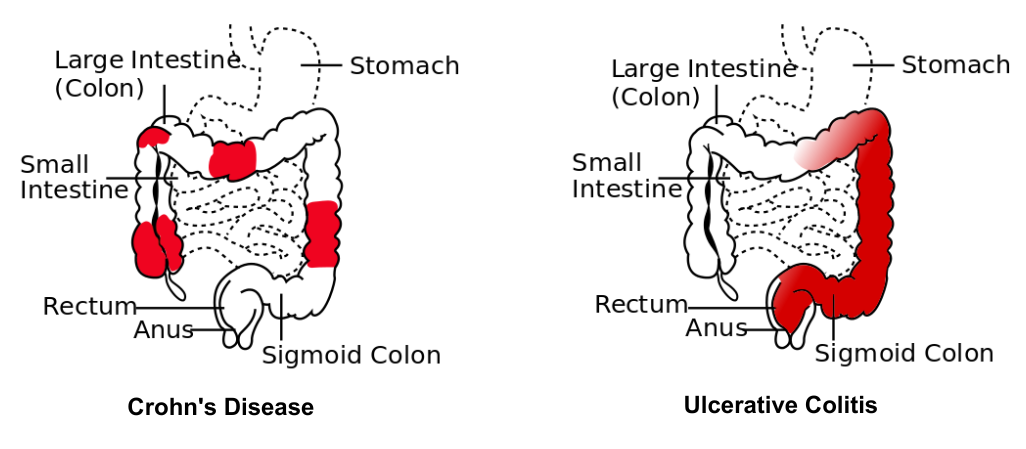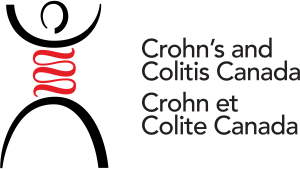Crohn’s Disease & Ulcerative Colitis

What are Crohns Disease and Ulcerative Colitis?
What are the symptoms?
The most common symptoms of Crohn’s disease and ulcerative colitis include abdominal pain or cramping; diarrhea (blood in stool with colitis); nausea and vomiting; diminished appetite and weight loss; fever; and fatigue. While Crohn’s disease and ulcerative colitis patients experience similar symptoms, the symptoms may differ from person to person. Additionally, some symptoms occur only in Crohn’s disease or ulcerative colitis.
Click here to watch a helpful video about managing symptoms and complications.
What should I do when symptoms appear?
When symptoms appear, seek the advice of your family physician. They may refer you to see a gastroenterologist, a doctor specializing in the diagnosis and treatment of IBD. A series of tests often take place to determine if there is a manifestation of IBD. Common tests include a sigmoidoscopy, colonoscopy, and less commonly a barium x-ray. Specialists will often analyze blood and stool samples to look for markers of inflammation and infection.
Crohn’s Disease vs. Ulcerative Colitis

How can I prevent flare-ups and manage the disease?
There are several ways to manage Crohn’s disease and ulcerative colitis. The main treatments include symptomatic medication therapy and anti-inflammatory medication therapy, which includes: 5-Aminosalicylic Acid (5-ASA), corticosteroids, immunosuppressive agents, and biotherapies (biologics and biosimilars).
Click here to learn more about available treatment options for your IBD and symptoms.
Click here to watch a short video about new and emerging treatments for Crohn’s disease and ulcerative colitis from an expert gastroenterologist.
Surgical options may be available for treatment of Crohn’s disease and ulcerative colitis. Learn more
Additional support and information on Crohn’s disease and ulcerative colitis:
Crohn’s & Colitis Canada
Source:
Crohn’s & Colitis Canada

